Permissive Neglectful Parenting Style Examples I Believe That Most Parents Will Use A Mixture Of Parenting Styles Depending On What Is Going On In Their Lives.
Permissive Neglectful Parenting Style Examples. They Are Authoritarian, Authoritative, Permissive, And Uninvolved.
SELAMAT MEMBACA!
They expanded baumrind's permissive parenting style into two different types:
![What Is Authoritative Parenting? [With Examples] in 2020 ...](https://i.pinimg.com/originals/2b/82/7f/2b827f49611e6bd410dae7e2401abe86.jpg)
Parenting styles and their effects on children.
Permissive parenting, also known as indulgent parenting, is a parenting style characterized by high responsiveness and low demandingness.
Here are the characteristics and examples of permissive parenting.
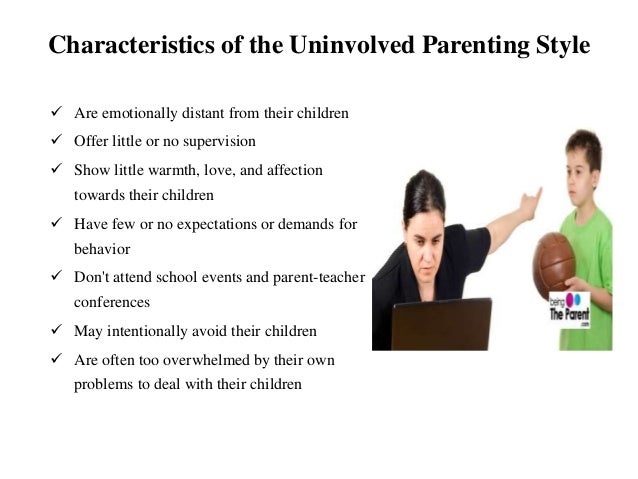
Permissive or indulgent parenting style.
Someone who parents in the permissive style is typically warm and kind to them.
When children have received mostly neglectful parenting, they tend to think there's something wrong with them.

You'll follow expectant parents, mary and larry, as they walk their neighborhood and try to learn from other parents.
Permissive parenting is a type of parenting style characterized by low demands with high responsiveness.
Permissive parenting is sometimes known as indulgent parenting.
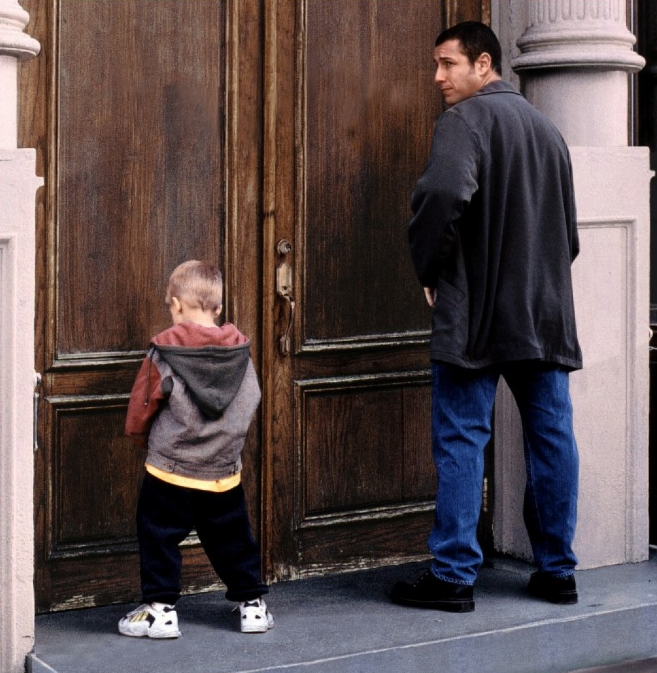
Permissive parents usually take on more of a friend role than a parent role.
They often encourage their children to talk with them about their problems uninvolved parents may be neglectful but it's not always intentional.
A parent with mental health issues or substance abuse problems, for example.

You are at the grocery here we tell you about how permissive parenting can be good as well as bad.
As this parenting style focuses on being a friend to a child.
Parenting styles, most notably neglectful parenting, can have a profoundly negative effect on a child's development.

Neglectful parenting is a parenting style where parents show little to zero responsiveness to their children's overall needs.
While this is a controversial technique, practicing parents argue this style helps their kid become more independent.
Find out all about neglectful or uninvolved parenting style.
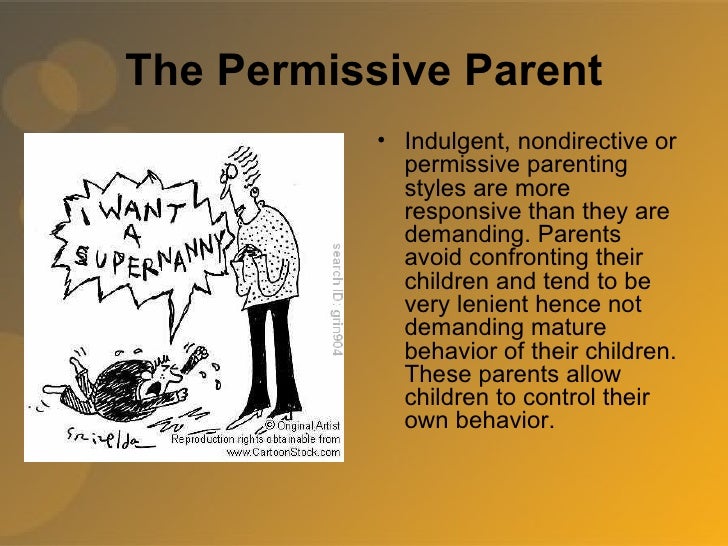
Permissive parenting in this style of parenting, parents are lenient, and they only step in when there is a severe issue.
They are quite forgiving and might when we observe the social interaction between toddlers, it exhibits the ability to exchange turns and roles in action.
For example, you will see.
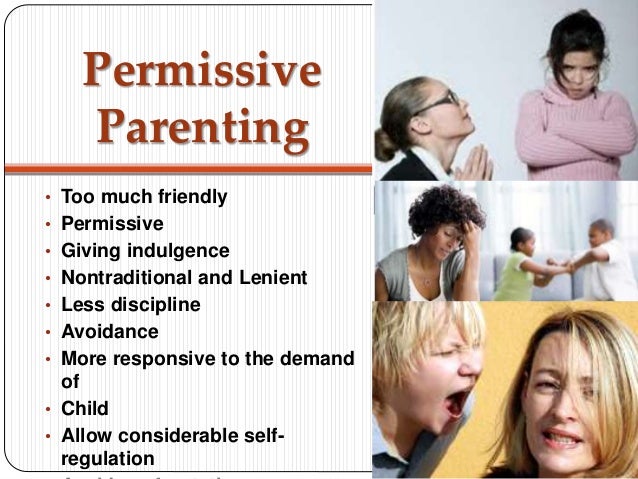
Permissive parents are still loving and responsive to their children's needs.
Neglectful parents also provide no structure ore rules, but they're also totally uninvolved in other aspects of the child's life.
Permissive parents are involved, but.
/1095045-article-types-of-parenting-styles-5a7cb6aaa18d9e00362ef5eb.png)
Today, new names for parenting styles are arising.
For example, helicopter parenting is similar to the authoritative style, but with a little more involvement, or some might say.
The permissive parenting style is an extremely relaxed approach where parents are generally warm, nurturing and affectionate.
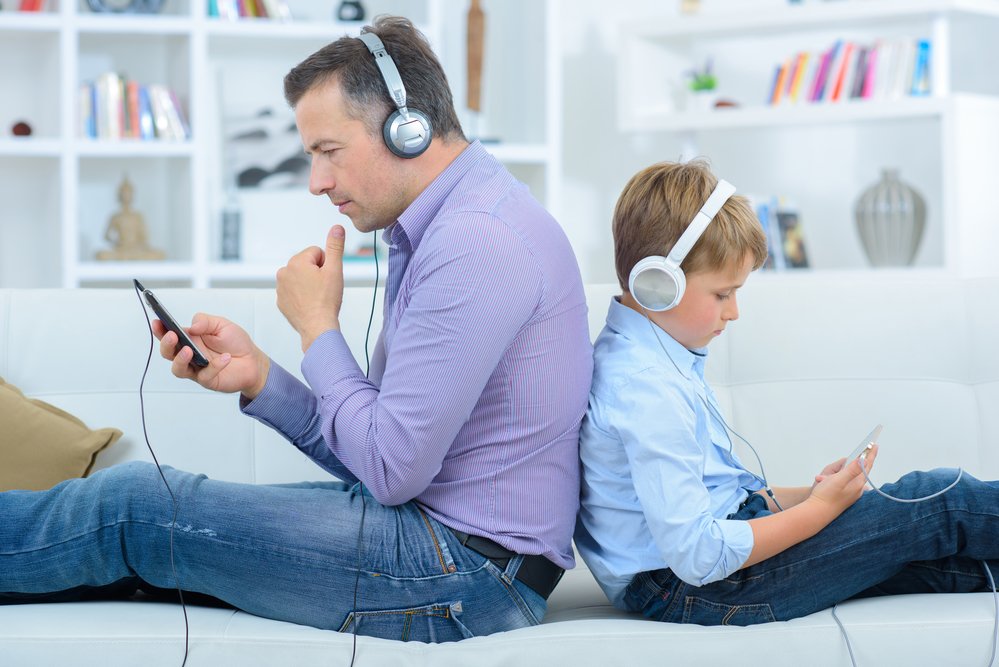
They feel their children are capable of making their own decisions with little parental guidance.
Neglectful parenting , also known as uninvolved parenting, is a parenting style that believes children can raise themselves without much guidance on behalf of the parent.
Neglectful parents don't monitor their children's behaviors and sometimes fail to support their children's physical, emotional.

Understanding what the permissive parenting permissive parenting itself is not necessarily neglectful.
Those who practice permissive parenting do interact with and respond to their children.
While authoritarian, permissive, and neglectful parenting style types when compared to authoritative parenting seem to be associated with higher probabilities of problems in adolescents, it is clear that not all adolescents in families with these parenting characteristics have difficulties.
The characteristics or signs of neglectful parenting can be generic.
Permissive parenting is the polar opposite of authoritarian.
Permissive parents want to be their child's best friend, yip says.

As with most approaches (aside from neglectful), it stems.
Permissive parenting is also known as indulgent parenting.
Parents adopt a very friendly parenting approach in this kind of parenting style, and they often do not expect their children to act or behave in a mature manner.
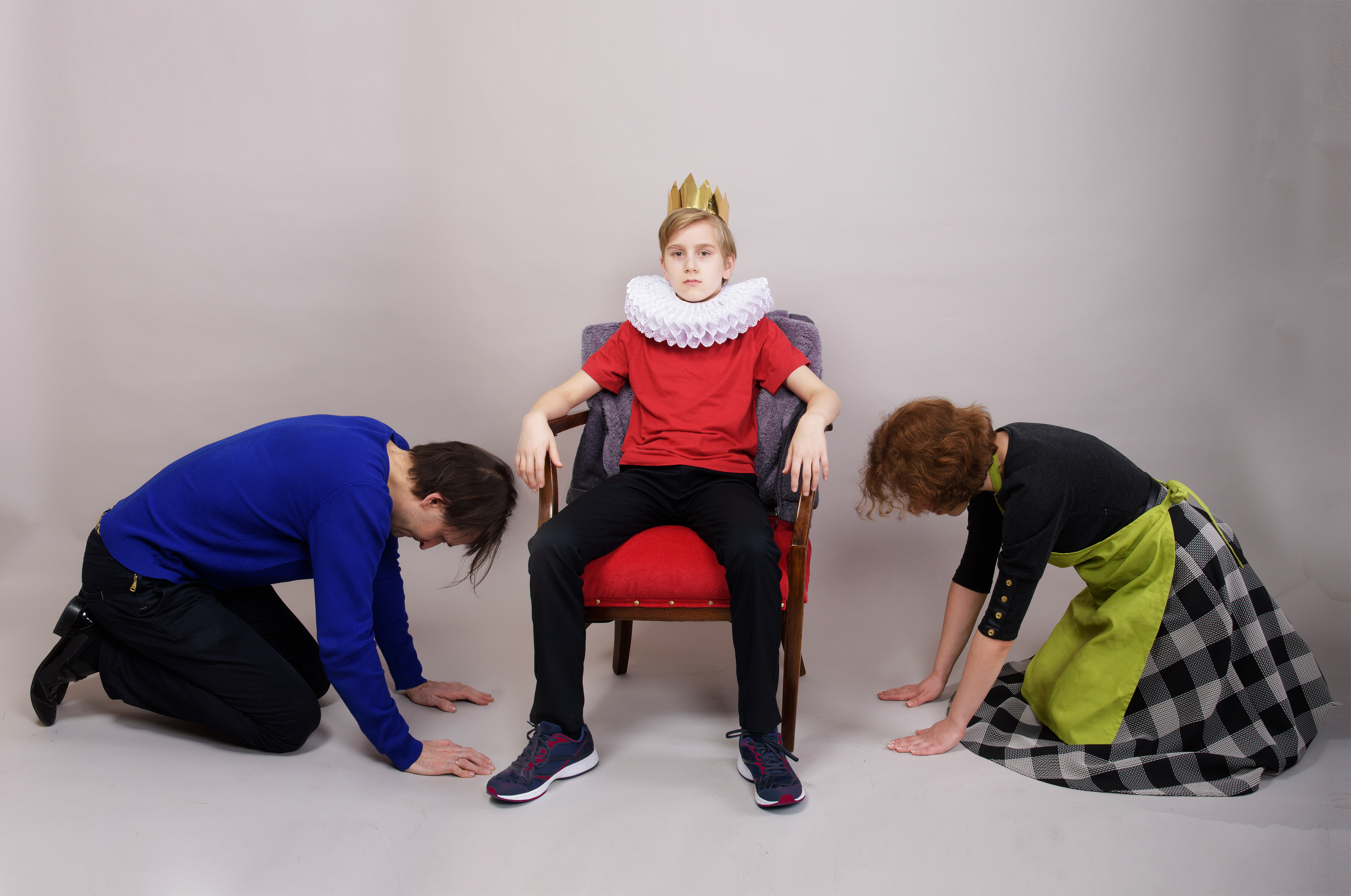
The quality of parenting can be more essential than the quantity of time spent with.
What is my parenting style?
Wouldn't it be fantastic if the adorable little ones came with an instruction manual?
There are three major recognized parenting styles:
All carry different characteristics and bring different reactions from the children.
Parenting styles such as these can be beneficial to the children.

The permissive parenting styles also constitute another parent styles example.
In this parenting style, the parent deviates from traditional parenting remember, anything labeled neglectful is often outside the parent's care.
Neglectful parents feel indifferent toward children's feelings.

Parents may not fit completely into just one of these styles, but could have some over lap.
A common phrase used by authoritarian parents, because i said so, is a succinct example of having high demands and no responsiveness.
Child is boss, parents have little or no influence.
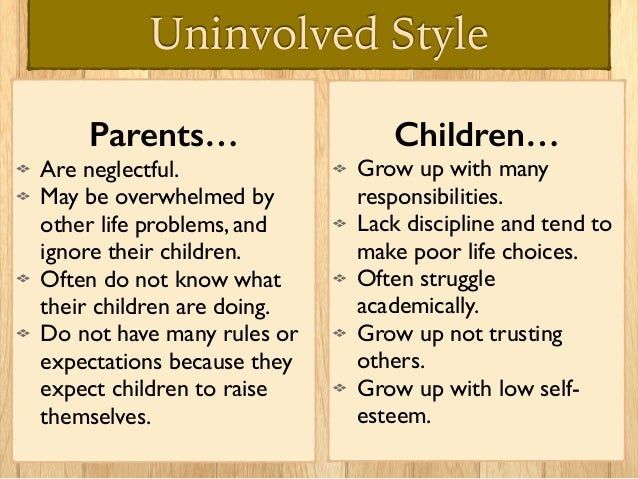
Child wants to stay out later, and the parents say that the curfew will stand, no discussion.
Permissive parents are often viewed by outsiders looking in as lazy or even neglectful.
I believe that most parents will use a mixture of parenting styles depending on what is going on in their lives.

The permissive parenting style in depth:
Taking diana baumrind's definition a step further by understanding the psychological fears of permissive parents.
Trying to find a universally applicable definition of permissiveness in relation to parenting is confusing to say the least.

Not all parents fit into just one parenting style, either;
Many might be a combination of two or even three.
Vitalitas Pria, Cukup Bawang Putih SajaTips Jitu Deteksi Madu Palsu (Bagian 1)Uban, Lawan Dengan Kulit KentangBahaya! Setelah Makan Jangan Langsung Minum, Ini Faktanya!!5 Manfaat Posisi Viparita KaraniKhasiat Luar Biasa Bawang Putih PanggangTernyata Kalsium Tidak Selalu Baik Untuk TubuhIni Cara Benar Cegah HipersomniaJangan Buang Silica Gel!Ternyata Salah Merebus Rempah Pakai Air MendidihMany might be a combination of two or even three. Permissive Neglectful Parenting Style Examples. What's more, most parenting approaches offer some valuable.
They expanded baumrind's permissive parenting style into two different types:

Parenting styles and their effects on children.
Permissive parenting, also known as indulgent parenting, is a parenting style characterized by high responsiveness and low demandingness.
Here are the characteristics and examples of permissive parenting.

Permissive or indulgent parenting style.
Someone who parents in the permissive style is typically warm and kind to them.
When children have received mostly neglectful parenting, they tend to think there's something wrong with them.

You'll follow expectant parents, mary and larry, as they walk their neighborhood and try to learn from other parents.
Permissive parenting is a type of parenting style characterized by low demands with high responsiveness.
Permissive parenting is sometimes known as indulgent parenting.

Permissive parents usually take on more of a friend role than a parent role.
They often encourage their children to talk with them about their problems uninvolved parents may be neglectful but it's not always intentional.
A parent with mental health issues or substance abuse problems, for example.

You are at the grocery here we tell you about how permissive parenting can be good as well as bad.
As this parenting style focuses on being a friend to a child.
Parenting styles, most notably neglectful parenting, can have a profoundly negative effect on a child's development.

Neglectful parenting is a parenting style where parents show little to zero responsiveness to their children's overall needs.
While this is a controversial technique, practicing parents argue this style helps their kid become more independent.
Find out all about neglectful or uninvolved parenting style.
Permissive parenting in this style of parenting, parents are lenient, and they only step in when there is a severe issue.
They are quite forgiving and might when we observe the social interaction between toddlers, it exhibits the ability to exchange turns and roles in action.
For example, you will see.

Permissive parents are still loving and responsive to their children's needs.
Neglectful parents also provide no structure ore rules, but they're also totally uninvolved in other aspects of the child's life.
Permissive parents are involved, but.

Today, new names for parenting styles are arising.
For example, helicopter parenting is similar to the authoritative style, but with a little more involvement, or some might say.
The permissive parenting style is an extremely relaxed approach where parents are generally warm, nurturing and affectionate.

They feel their children are capable of making their own decisions with little parental guidance.
Neglectful parenting , also known as uninvolved parenting, is a parenting style that believes children can raise themselves without much guidance on behalf of the parent.
Neglectful parents don't monitor their children's behaviors and sometimes fail to support their children's physical, emotional.
Understanding what the permissive parenting permissive parenting itself is not necessarily neglectful.
Those who practice permissive parenting do interact with and respond to their children.
While authoritarian, permissive, and neglectful parenting style types when compared to authoritative parenting seem to be associated with higher probabilities of problems in adolescents, it is clear that not all adolescents in families with these parenting characteristics have difficulties.

The characteristics or signs of neglectful parenting can be generic.
Permissive parenting is the polar opposite of authoritarian.
Permissive parents want to be their child's best friend, yip says.
As with most approaches (aside from neglectful), it stems.
Permissive parenting is also known as indulgent parenting.
Parents adopt a very friendly parenting approach in this kind of parenting style, and they often do not expect their children to act or behave in a mature manner.

The quality of parenting can be more essential than the quantity of time spent with.
What is my parenting style?
Wouldn't it be fantastic if the adorable little ones came with an instruction manual?
There are three major recognized parenting styles:
All carry different characteristics and bring different reactions from the children.
Parenting styles such as these can be beneficial to the children.
The permissive parenting styles also constitute another parent styles example.
In this parenting style, the parent deviates from traditional parenting remember, anything labeled neglectful is often outside the parent's care.
Neglectful parents feel indifferent toward children's feelings.
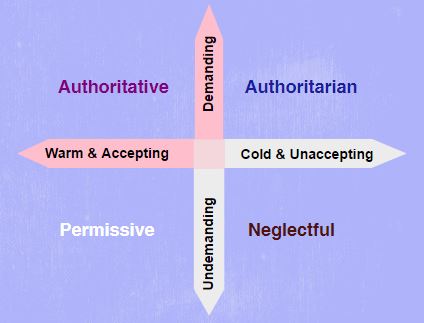
Parents may not fit completely into just one of these styles, but could have some over lap.
A common phrase used by authoritarian parents, because i said so, is a succinct example of having high demands and no responsiveness.
Child is boss, parents have little or no influence.

Child wants to stay out later, and the parents say that the curfew will stand, no discussion.
Permissive parents are often viewed by outsiders looking in as lazy or even neglectful.
I believe that most parents will use a mixture of parenting styles depending on what is going on in their lives.
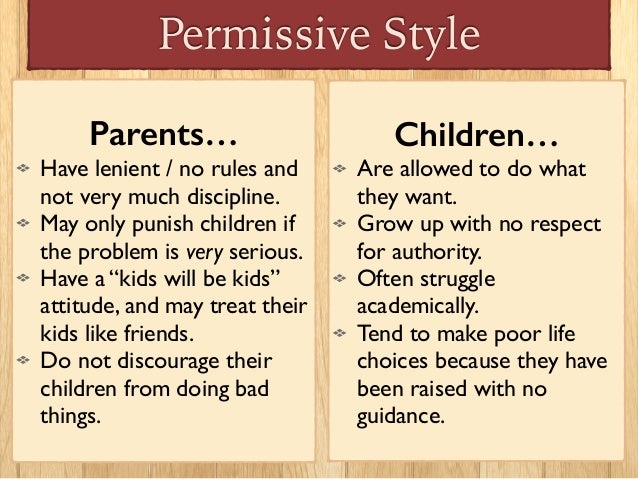
The permissive parenting style in depth:
Taking diana baumrind's definition a step further by understanding the psychological fears of permissive parents.
Trying to find a universally applicable definition of permissiveness in relation to parenting is confusing to say the least.

Not all parents fit into just one parenting style, either;
Many might be a combination of two or even three.
Many might be a combination of two or even three. Permissive Neglectful Parenting Style Examples. What's more, most parenting approaches offer some valuable.Stop Merendam Teh Celup Terlalu Lama!Resep Ayam Suwir Pedas Ala CeritaKulinerKuliner Legendaris Yang Mulai Langka Di DaerahnyaCara Buat Spicy Chicken Wings Mudah Dan Praktis Ala CeritaKulinerPete, Obat Alternatif DiabetesTernyata Kamu Baru Tau Ikan Salmon Dan Tenggiri SamaResep Stawberry Cheese Thumbprint Cookies5 Kuliner Nasi Khas Indonesia Yang Enak Di LidahTernyata Makanan Ini Hasil Naturalisasi9 Jenis-Jenis Kurma Terfavorit
Comments
Post a Comment